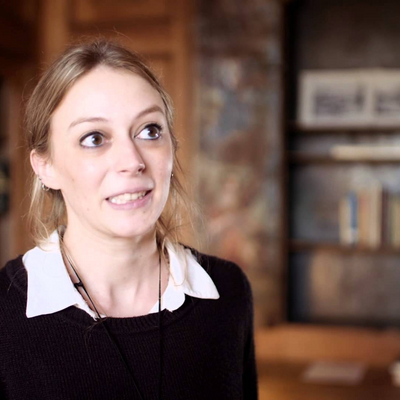Christiana Damanaki
- Course
- Museology
- Class
- 2015
Museum Funding and Social Entrepreneurship
Balancing between the Market and Sociality in the Knowledge Age
This thesis sets out to explore the challenges that Western museums are facing relating to funding. Funding practices are reflected upon as the financial expression of museological values and ideas, thus they are considered part of the identity of museums. Social entrepreneurship, which combines business methods with social aims, is used to frame the issue and develop recommendations.
Society has advanced into the Knowledge Age, where knowledge is the main resource instead of capital or land. This has brought changes in the economic, social, and political spheres. The first part of the thesis explores these changes and examines how they affect museums. The external transformations have brought forward the new model of the Museum as Social Enterprise. Nevertheless, the museum field still upholds business models that do not relate to the Knowledge Age. Consequently, the lack of relevance has been detrimental to museum funding.
In the second part of the thesis, social entrepreneurship is reflected upon as a way to address these issues. It is difficult to define social entrepreneurship as a term; yet there is a consensus on its three major tenets, namely marketization, innovation, and sociality, the last one being the final aim and arbiter of success for a social enterprise. The three tenets are thoroughly discussed in this study in relation to museums. Marketization, particularly, is a pivotal issue as it inflicts the most crucial changes in the institutional identity and role of museums.
A case study was selected in order to reflect on the contingency of social entrepreneurship. The Byzantine and Christian Museum is examined as a specific case that can reveal the potential and limitations of developing a museum as a social enterprise in a particular context, which combines the opportunities and obstacles for such an endeavor.
The results of the research study show that social entrepreneurship can benefit museums in finding a balance between defining their mission and social role in the Knowledge Age, manage their resources, and attract sustainable funding. Market orientation is used as a method to reflect upon the external context of museums, and as an internal tool to respond to this context. However, it is not a defining factor of an institution. A distinct definition of social entrepreneurship in museums is proposed by the study, in order to connect this concept to the specific needs of the field. Finally, recommendations on funding practices are presented, with the aim to build resilient institutions for a sustainable society. Essentially, adopting explicit social aims and achieving them with realistic and entrepreneurial methods can define the social role of museums in a manner relevant to the contemporary context. Museums that achieve social legitimacy and an entrepreneurial attitude can attract and produce resources.
